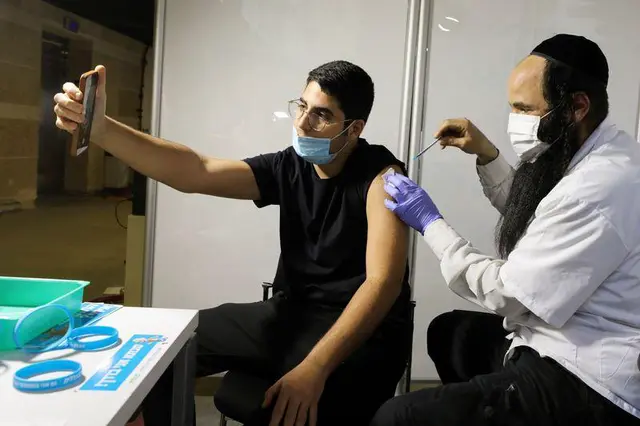An increased anti-American sentiment arises in Turkey recently, as Turks perceive the United States as a great threat to their national security, according to a lastest survey.
Experts said the main reason was Washington's lack of support for its NATO ally after last year's coup attempt and its open support to Syrian Kurdish militia.
The Washington-based Pew Research Center surveyed 41,953 people in 38 countries over 11 weeks to discover things that were considered as the biggest threats around the world.
For a majority of Turks, the answer was the United States.
"Globally, a median of about one third view the power and influence of the United States, Russia or China as a major threat. America's influence is a top concern in Turkey," the survey read.
"A year after a failed coup attempt blamed at least in part on the United States, 72 percent in Turkey say American power and influence is a major threat to their country," said Jacob Poushter and Dorothy Manevich, co-authors of the report, on the Pew Research Center's website.
"This figure is up 28 percentage points since 2013, when just 44 percent named U.S. power and influence as a major threat. People in Turkey are also worried about the refugee issue which has spilled over their borders in recent years," they added.
One year after the failed coup attempt on July 15, the relations between Turkey and its traditional ally the United States have gone from uneasy to challenging.
Turkish President Recep Tayyip Erdogan and senior officials from his Justice and Development Party (AKP) publicly criticized the U.S. administration for refusing to extradite their number one enemy, Fethullah Gulen, the self-exiled cleric who had been accused of plotting last year's attempted coup that claimed nearly 250 lives and wounded over 2,000 others.
The frequency of conspiracy theory rhetoric against the United States has lessened since the coup, but the pro-government press is regularly fueling anti-U.S. sentiment.
On Wednesday, daily Takvim argued that coup leaders who were on trial in Ankara, swore allegiance to the United States by wearing American designer brands at court hearings.
As both the Obama and the Trump administration made clear that the extradition case for Gulen, living in Pennsylvania since 1999, would be handled as a judicial rather than a political matter, Ankara's attitude against the United States hardened.
"The essential reason why Turks see the United States as a threat is directly linked to the fact that this country is arming a movement that Turkey considers as a menace to its national security," Mustafa Aydin, professor of Kadir Has university said based on another survey conducted by his institution.
"The refusal by Washington to extradite Gulen, along with the perception that some American institutions might have involved in the coup attempt also had an impact on Turks' negative perception of the United States," he pointed out.
Gulen's far-reaching network consists of some 150 schools in more than 20 states in America. The schools and related institutions have operated on more than 2.1 billion U.S. dollars of U.S. taxpayers since 2010. It was used to found the networks interests in Turkey, Turkey's pro-government Anadolu Agency has recently reported.
Turkey has so far requested the extradition of more than 100 people with suspected links to the Gulen movement after the failed coup, according to Turkish government.
Turkish government officials also feel it was unlikely for the United States to approve a quick extradition of the outlawed preacher, as no progress has been made on the request yet.
"We find it hard to believe that an ally country refuses to hand an individual accused of terrorism and violent acts. As long as the United States refuses to cooperate on the matter, relations will continue to be strain and the Turkish people will feel betrayed," said an AKP official to Xinhua on the condition of anonymity.
"Our citizens find it hard to understand this unfriendly attitude. We hope that the U.S. administration will understand Turkey's preoccupations otherwise bad blood will prevail," he added.
Another ongoing and possibly more vexatious row is the U.S. support for Syrian Kurdish fighters of YPG (People's Protection Units) and the Syrian political group the PYD (Democratic Union Party).
For Turkey, U.S. support for the two intertwined organizations as allies in fighting Islamic State (IS) in Syria means support for the separatists Kurdish insurgents of the PKK, who are waging bloody campaigns in Turkey since 1984.
"Both Turkey and the United States consider the PKK a terrorist organization yet Washington is backing an affiliate and existing threat to Turkey," argued Turkish officials.
Turkey believes the Kurds want to establish an independent Kurdish state in Syria that would threaten its sovereignty.
In a press briefing on Tuesday, U.S. Secretary of State Rex Tillerson said that the relation with Turkey "is a bit under stress," but noted that Turkey "has a big role to play in Syria," without specifying on how to amend ties or how to retrieve weapons supplied to the YPG once the mission against IS is over.
Experts argue that Erdogan's stance is crucial in restoring ties as he has the last word on Turkey's foreign policy.
"Anti-Americanism is not something new in Turkey. If the president decides that this is enough, things will go back on track but at this stage he is using the current situation as a leverage in internal politics," told Xinhua political commentator and Hurriyet daily columnist Deniz Zeyrek.
According to him, the problems caused by the failed coup, such as the state of emergency that caused a massive crackdown against not only exiled Gulen's followers but all opposition circles, have led to a crisis in the country and blaming the West for the turmoil is easier than to address the problems.
"Blaming the West, the United States or European Union countries is more attractive and sympathetic for the popular masses in Turkey," added Zeyrek.
(ASIA PACIFIC DAILY)
 简体中文
简体中文

